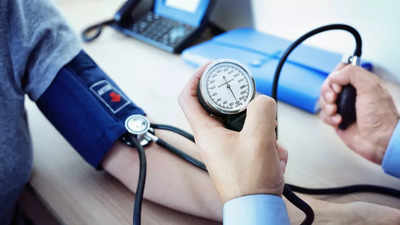High blood pressure or hypertension affects millions worldwide and is a leading cause of heart disease and stroke. If left untreated, hypertension can put you at serious risk. As this condition has no signs or symptoms, one may not know they have it. This is also one of the reasons why health experts call it a ‘silent killer’. An estimated 46% of adults with hypertension are unaware that they have the condition, according to WHO. However, some people never have experienced high blood pressure, due to various reasons. Let’s take a look at what is high blood pressure, why some people never have it, and some science-backed tips to beat hypertension.
What is hypertension?

Hypertension (high blood pressure) is when the pressure in your blood vessels is too high (140/90 mmHg or higher). Normal blood pressure is less than 120/80 mm Hg. Your blood pressure varies throughout the day based on your activities. Hypertension is diagnosed when the blood pressure is consistently above normal.
High blood pressure happens when the force of blood pushing against your artery walls is consistently too high. This pressure damages your arteries over time and can lead to serious complications like heart attack and stroke. The higher the blood pressure, the higher your risk of serious health problems such as heart disease, heart attack, and stroke.
Why do some people never have high blood pressure?

Though hypertension is a common condition, some individuals never get it. High blood pressure is influenced by a complex interplay of certain factors. The factors include older age, genetics, being overweight or obese, physical inactivity, high-salt diet, and drinking too much alcohol among others.
People who have inherited traits that protect them against hypertension have lesser chances of developing it. Also, lifestyle choices drastically affect a person’s chance of developing hypertension.
How to prevent hypertension?

Hypertension is the key to deadly diseases, and hence keeping it in control is the best way to prevent serious illness. Here are some science-backed tips to prevent hypertension.
DASH diet
DASH (Dietary Approaches to Stop Hypertension) is a balanced diet plan that can help you to create a ‘heart-healthy’ life. It was named the ‘Best Heart-Healthy Diet’ and ‘Best Diet for High Blood Pressure’ by the US. News & World Report in 2025. You do not have to incorporate special foods in this plan. Here the focus is instead on meeting daily and weekly nutritional goals. DASH plans include nutrient-dense meals around whole grains, vegetables, and fruits, and include fish, poultry, beans, nuts, and healthy oils. You also limit fatty meats, full-fat dairy, sugar-sweetened beverages, sweets, and sodium intake to keep the LDL aka bad cholesterol at bay.
Move for 30 minutes, three times a day
Physical activity will decrease your risk of getting hypertension. You can aim for at least 30 minutes of moderate aerobic activity on most days. Walking, cycling,or dancing can help. A 2024 study found that replacing any less active behavior with five minutes of exercise could lower systolic blood pressure by 0.68 points and diastolic blood pressure by 0.54 points. When exercise time was 15 minutes longer, the reduction was bigger. The more you move, the less your chances of hypertension.
Quit smoking and limit alcohol
CDC recommends quitting smoking, because smoking raises blood pressure, and also increases your risk of heart attack and stroke. Alcohol consumption is also linked to hypertension. “Men should have no more than 2 alcoholic drinks per day, and women should have no more than 1 alcoholic drink per day,” the agency recommends.
Maintain a healthy weight
Being overweight, or obese too accelerates your chances of high blood pressure. Maintaing an ideal weight can keep a lot of illness at bay, inclduing this condition. CDC recommends to talk to your health care team about the ways to reach a healthy weight, and choose healthy foods and get regular physical activity.
Cut back on sodium
Eating too much salty food can lead to hypertension. WHO recommends to stay under 2 grams per day. It is also important to look beyond table salt. Check labels on processed foods (e.g., canned soups, sauces, deli meats, snacks) where sodium hides. Eating home-cooked meals can be helpful.


